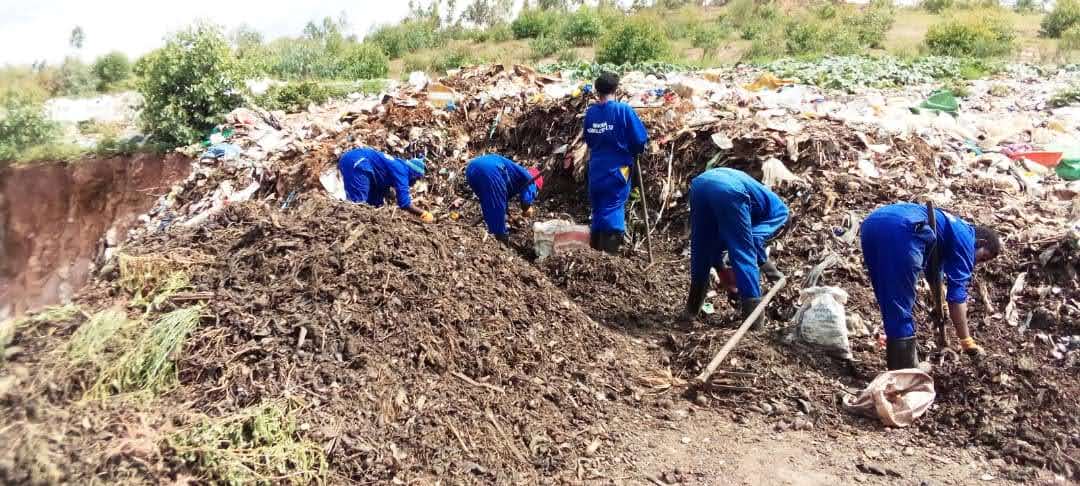
Waste management
Rwanda is a small country (26,338 km2) with a population of about 14 million (2023) with the current high increasing population rate. 90 % of Rwandans depend on agriculture. However, due to the population growth and the improvement of living standards, there is a growing concern associated with waste generation in Kigali city and secondary cities. In kigali,all collected waste goes to only one landfill as they do in all secondary cities. In addition, more than 68% of the waste composition is dominated by organic waste. Deep-seated fires, methane explosions, landslides, and leachates threatening rivers and groundwater are some of the common problems born from landfill mismanagement. Moreover, greater than 50 % of wastes that go to landfills are of good quality for composting, such as waste from purely residential neighborhoods, and wastes from special generators such as markets, restaurants, and slaughterhouses.
Our main activities:
-
Awareness Campaigns:
Conducting educational programs and awareness campaigns to inform communities and public about the importance of organic waste recycling, the environmental impacts of improper waste disposal, and the benefits of composting and other recycling methods.
-
Community Workshops:
Organizing workshops, seminars, and training sessions to teach individuals and communities how to properly segregate organic waste, set up composting systems, and utilize recycled organic matter for gardening and agriculture.
-
Composting Initiatives:
Establishing community composting facilities or promoting home composting methods to divert organic waste from landfills and turn it into nutrient-rich compost for soil enrichment.
-
Partnerships with Local Authorities:
Collaborating with local governments to develop policies and programs that support organic waste recycling, such as implementing waste taxonomy, collection, sorting, and recycling programs and providing incentives for businesses to compost their organic waste management.
-
Research and Development:
Partnership with academic and research institutions to conducting research on innovative technologies and methods for organic waste recycling, including bio composting such as vermicomposting, anaerobic digestion, and biochar production, to improve efficiency and scalability of recycling efforts.
-
Advocacy and Policy Influence:
Advocating for stronger environmental regulations and policies related to waste management and recycling at local, national, and international levels, and lobbying for increased funding and support for organic waste recycling initiatives.
-
Partnerships with Businesses and Institutions:
Collaborating with businesses, schools, universities, and other institutions to implement waste reduction and recycling programs as well as adaption of digital technologies in wastes recycling.
-
Monitoring and Evaluation:
Monitoring the impact of organic waste recycling programs through data collection, surveys, and assessments to measure waste diversion rates, environmental benefits, and community engagement levels, and using this information to continuously improve and refine recycling efforts.
-
Capacity Building:
Building the capacity of local communities and youth managed start-ups to independently manage and sustain organic waste recycling initiatives through training, mentoring, and providing technical assistance.
-
Public Engagement and Volunteerism:
Engaging volunteers and community members in hands-on activities such as clean-up drives, composting workshops, and awareness-raising events to foster a sense of ownership and participation in waste management efforts.